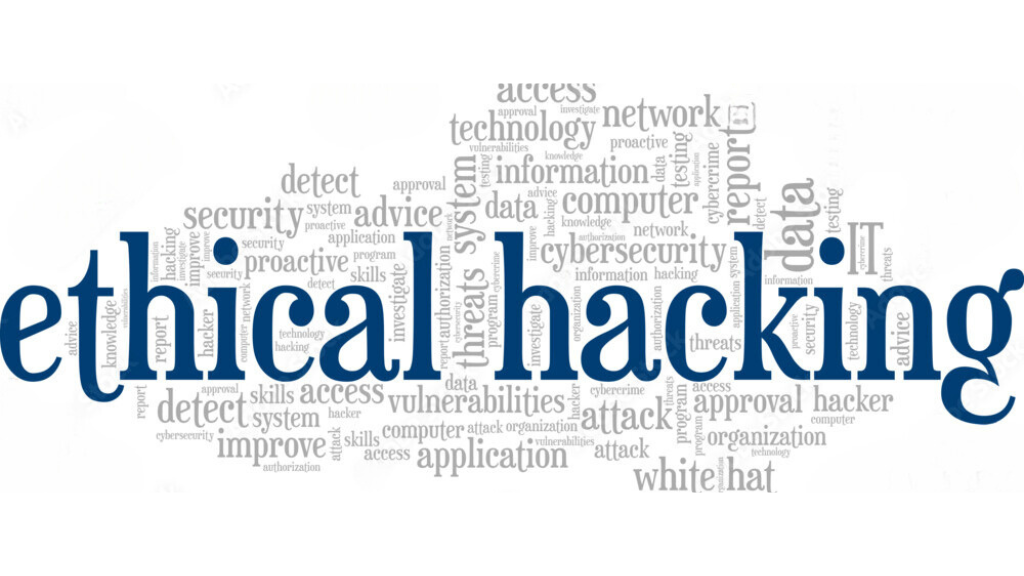Ethical hackers are in high demand in the digital transformation age and increased cyber threats. But before diving into this world, you must know; What are the prerequisites for ethical hacking?
Ethical hacking involves using the same techniques as malicious hackers to identify vulnerabilities and security loopholes in a system or network. We’ll show you the basic requirements to become an ethical hacker: technical skills, ethical values, or a thirst for knowledge.
Prerequisites for Ethical Hacking

The significance of ethical hacking cannot be overstated, as cyber attacks have become a significant threat to businesses, governments, and individuals. In recent years, we have seen numerous high-profile cyber attacks that have resulted in the theft of sensitive information, financial losses, and even disruption of critical infrastructure.
To be a professional, ethical hacker, you must have the mindset and skills of a hacker. There are no best ethical hacking degrees or specific education requirements. However, individuals typically need a strong understanding of computer systems and networks, programming languages, and cybersecurity concepts. It is essential to have a strong knowledge of computer systems and networks and a range of technical and non-technical skills.
Here are some details about the requirements for ethical hacking.
Computer Fundamentals and Operating Systems
To become an ethical hacker, you:
- Need to understand computer fundamentals and operating systems deeply.
- Should be well-versed in computer hardware, software, and networking concepts.
- Should also have a good understanding of operating systems such as Windows, Linux, and macOS.
Programming Languages
Programming languages are the backbone of ethical hacking. You should have a good command of a minimum of one programming language, like Python, Java, or C++. A strong understanding of programming languages will help you identify software vulnerabilities and develop custom hacking tools.
Networking Concepts
It is important to understand network protocols, topologies, and devices well. You should also be familiar with network security concepts such as firewalls, VPNs, and intrusion detection systems.
Cybersecurity Fundamentals

You should understand cryptography, security models, and access control mechanisms well. You should also be familiar with common cyber attacks such as phishing, malware, and DDoS attacks.
CEH Certification
CEH (Certified Ethical Hacker) certification is valuable for ethical hackers. This certification demonstrates that you have the necessary knowledge and skills to work as an ethical hacker. The CEH certification covers ethical hacking techniques, penetration testing, and vulnerability analysis.
In addition to certification, they also offer specific ethical hacking courses and coaching classes that could be useful in your journey to get ethical hacking skills and become an ethical hacker.
Practical Experience
You should gain practical experience by participating in capturing the flag (CTF) competitions, bug bounty programs, and penetration testing projects. These activities will help you develop your skills and gain practical experience in ethical hacking.
Problem-Solving Skills
To be a successful ethical hacker, you must have excellent problem-solving skills. Ethical hackers must identify potential security threats and develop solutions to mitigate them effectively.
Continuous Learning
Ethical hacking is a constantly evolving field. New technologies and threats emerge daily, and you must keep up with the latest developments. Continuous learning is essential for ethical hacking. You should read blogs, attend conferences, and participate in online courses to stay updated with the recent trends and strategies in ethical hacking.
Also, Read: Exploring the Exciting World of Ethical Hacking Jobs in 2023
How to Learn Ethical Hacking and Become an Ethical Hacker Step by Step
Learning ethical hacking and becoming an ethical hacker can be a challenging and rewarding experience. Here are the steps to follow to become an ethical hacker with no experience.
Step 1: Learn the Basics of Networking and Operating Systems
The first step to learning ethical hacking is understanding networking and operating systems well. You can take online courses or read books to learn the basics of networking and operating systems.
Step 2: Learn a Programming Language

As we mentioned earlier, programming languages are essential for ethical hacking. You can begin with a language like Python, which is easy to learn and widely used in the industry. There are many online courses and resources available to learn Python.
By learning such a language, you will also learn coding essential to become an ethical hacker.
Step 3: Learn Ethical Hacking Concepts and Techniques
Once you understand networking, operating systems, and programming languages, you can learn ethical hacking concepts and techniques. You can take online courses or read books on ethical hacking.
Step 4: Obtain Certifications
Obtaining certifications such as the Certified Ethical Hacker (CEH), CompTIA Security+, or Certified Information Systems Security Professional (CISSP) can help you stand out in the job market and demonstrate your expertise in ethical hacking.
Step 5: Practice
Ethical hacking is all about practice, and you must practice your skills on virtual machines or in a lab environment. Many online platforms, such as Hack The Box, TryHackMe, and Pentester Academy, provide virtual labs for practicing ethical hacking.
Scope and Salaries of Ethical Hackers

The scope and pay of ethical hackers have been steadily rising in recent years, driven by the growing need for cybersecurity across industries. The International Penetration Testing Industry is anticipated to grow at an annual rate of 15.97% from its current value of USD 1.87 billion to USD 5.28 billion by 2028.
In terms of salary, the average annual salary for a job of a certified ethical hacker in the United States is around $98,000, according to PayScale. However, this can vary based on various factors, including experience, skills, location, and industry.
Another study predicts 3.5 million unfilled cybersecurity jobs globally by 2025, highlighting the high demand for skilled professionals. As a result, organizations are increasingly willing to pay a premium for ethical hackers with in-demand skills, such as penetration testing and vulnerability assessments.
Conclusion
Becoming an ethical hacker requires a strong foundation in computer networking, programming, and cybersecurity concepts. It is an ever-evolving field that demands continuous learning and practical experience.
At Nextdoorsec, we offer comprehensive ethical hacking services to help businesses identify vulnerabilities and enhance their cybersecurity posture. Our team of ethical hackers has the expertise to provide thorough testing and reporting, giving our clients peace of mind and a roadmap for improving their security.






0 Comments